7 Compelling Reasons Why Retailers Need Branded PPC Ads


If you’re a retail advertiser sinking a significant budget into PPC campaigns (namely AdWords), it can be difficult to accept the idea that you should be spending even more money to run branded PPC ads.
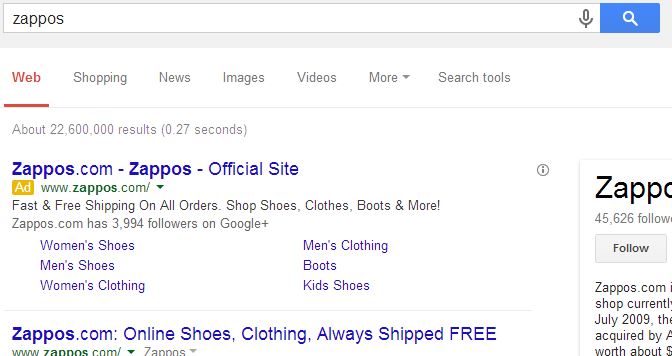
Branded (a.k.a. trademark) PPC ads are those that show up when someone is looking for your brand or website. The standard response to this notion is “but it won’t generate any new customers since they were already looking for my brand.” This is an oversight of the value that branded PPC ads can provide. Here’s why retailers, and online businesses in general, should be running ads for their branded terms.
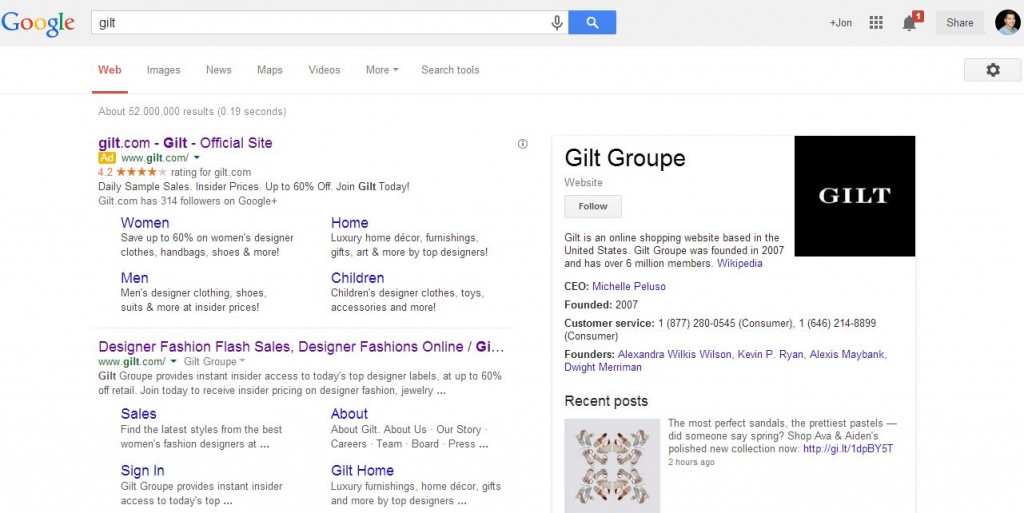
The fact of the matter is that these types of ads are low risk, high reward. Spend on these types of ads is minimal (the CPCs for your brand or site name will be low) and the return is always positive. The true value of bidding on branded terms is that it ensures you’re ranking on the top of the page. It also helps you own more of the SERP and pushes any competitors further down the page, sometimes shutting them out completely so only your results are showing on the top fold, like retailer Gilt Groupe does in the image above.
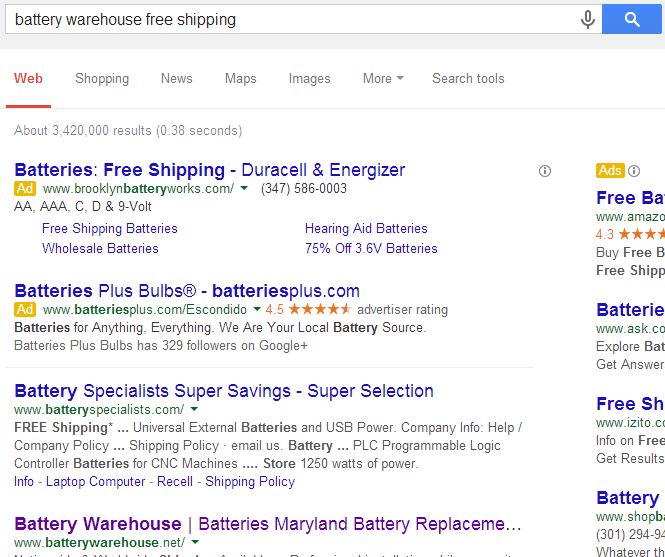
It’s not guaranteed that your site is going to show up for a “branded search” with a modifier like “free shipping” or “deals” attached to it. For example, searching for a promotional feature like free shipping when typing in Battery Warehouse (a retail site) yields a batterywarehouse.com organic result 4 slots down the first page.
This is definitely a query you’ll want to show up for, and branded ads will help you do this.
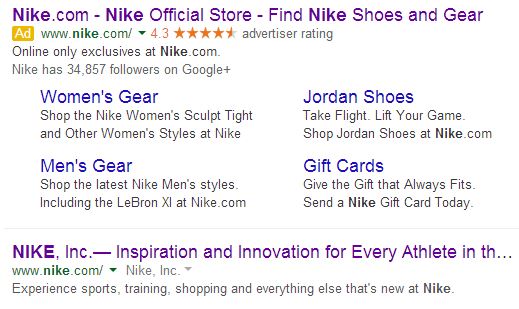
I’m willing to venture a guess that over time, Nike recognized that their Air Jordan shoe line was one of their most popular products. Why not give the option to funnel shoppers there?
Anyone who works with Google Analytics consistently will know the term “not provided.” This roadblock has limited marketers and advertisers from knowing which organic search queries lead visitors to their website.
Fortunately, there’s a way around this. This search terms information is still available for AdWords advertisers. Running ads for branded terms is a good way to do search term mining to see what other modifiers searchers are including when they’re looking for your site (i.e.: coupon codes, your top brands, store locations, etc.). Using this info, you can tailor ads to best serve what your shoppers are looking for.
Branded PPC ads also give your store the flexibility to constantly test different messages, value propositions, or slogans with tangible results. Seeing which terms resonate best with your audience is essential to high ad performance for all your PPC ads in the long term.
With branded PPC ads, you can tailor ads to what someone is searching for, including coupon codes, reviews, sales, or something as simple as product categories. You could potentially help conversion rates by funneling shoppers to the appropriate landing page (ie. Men’s Shoes, Women’s Clothing, etc.) rather than the home page.
Unlike SEO, the amount of gratitude Google has for your ad spend will not change. Now more than ever, SEO is on unstable ground as marketers and advertisers look to stay on top of Google’s consistent and random algorithm changes.
It’s risky for a retailer to fully rely on a given search engine to have their site at the top of every branded search. Branded PPC campaigns can mitigate changes to search engine algorithms, which could potentially push organic results down, because it ensures that your site will be at or towards the top of a SERP page. Ads for branded terms act as a safeguard to any unpredictable changes that may happen to your organic search results, though it should be noted that they don’t directly affect how well your organic results rank.
It’s clear that search engines are tailoring search results to emphasize personalization. As algorithms rely more on cookie-based user profiles, advertisers can mitigate risk of losing organic footprint for searches originating from users that have never engaged their website with branded PPC ads.
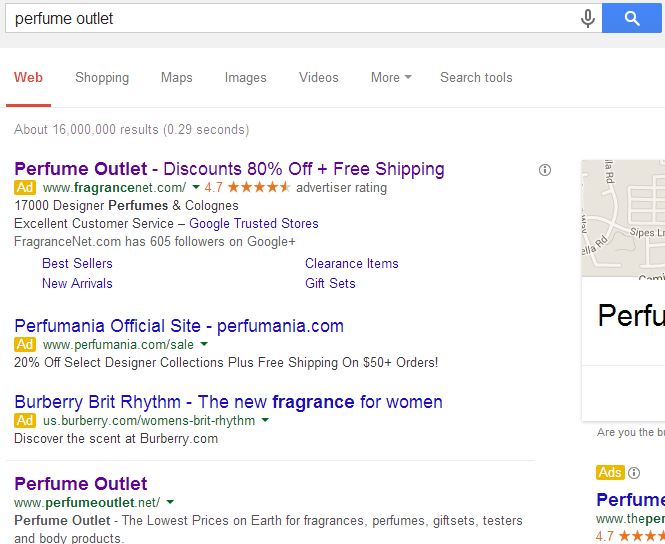
A harsh reality is that competitors may bid on your brand name. And if you aren’t there, then they will be. Such is the case with perfume retailer, Perfume Outlet, where they’re being outbid for their brand name by FragranceNet. Even if the ads aren’t necessarily targeting your brand name, they could be pushing your organic listings farther down the SERP. For Perfume Outlet, their organic listing is being pushed from ads run by competitor Perfumania and Burberry.
 Being ousted by a competitor’s ad when a shopper is looking for your store is essentially a worst-case scenario for a retail advertiser.
Being ousted by a competitor’s ad when a shopper is looking for your store is essentially a worst-case scenario for a retail advertiser.
*Special Thanks to Lewis “Big Lew” Brannon, Paid Search Manager at CPC Strategy.
